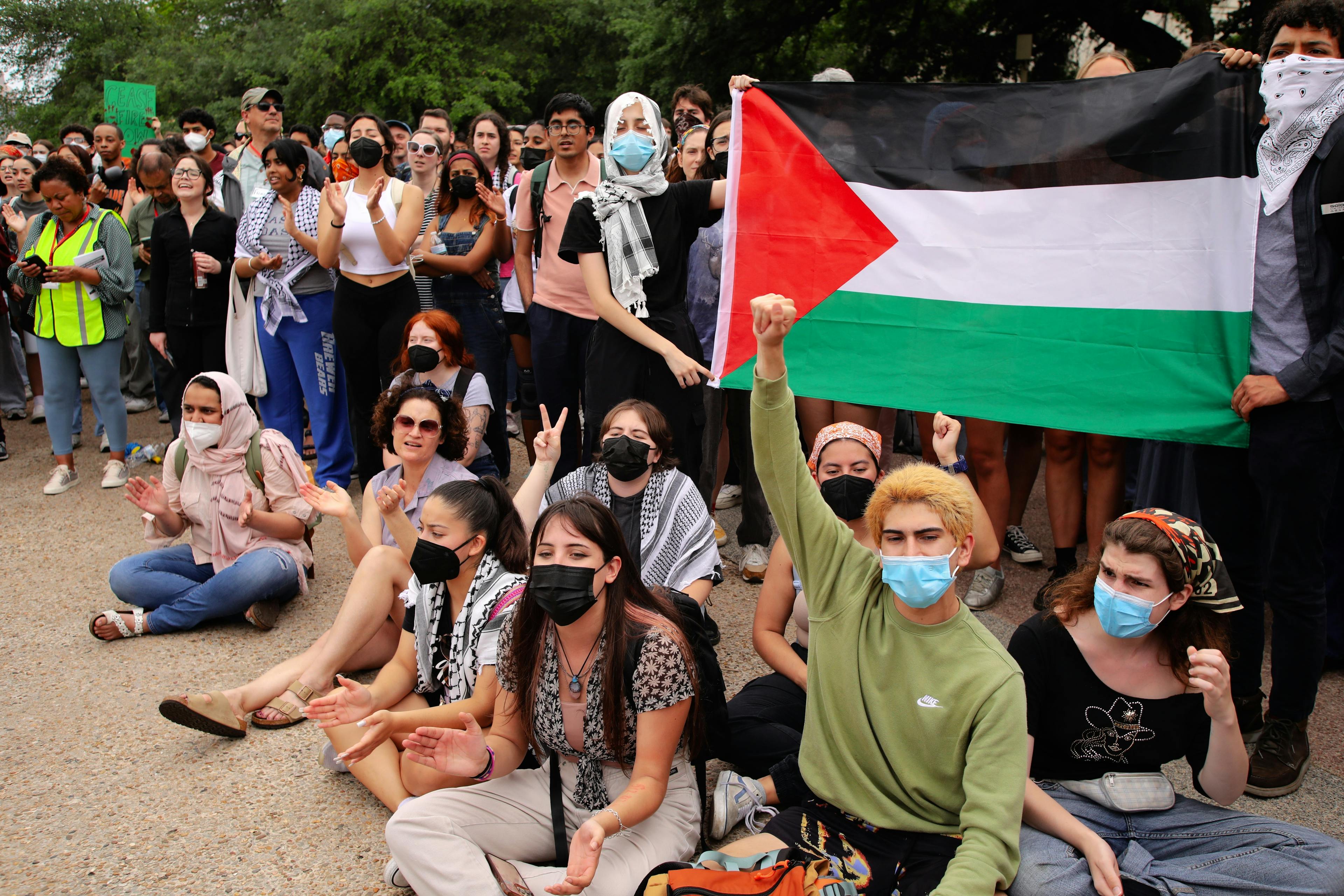Qatar’s Guileful Antisemitic Game: Sower of Hate, Broker of Peace

In the labyrinth of global geopolitics, few nations tread the line between ally and adversary as deftly as Qatar. This small Gulf monarchy, with grand ambitions matched only by the depth of its duplicity, has positioned itself as a key Western partner. At the same time, it maintains strong ties with groups and ideologies that despise the democratic values it publicly embraces.
Its intricate strategy—marked by generous funding of American universities, deep connections to the Muslim Brotherhood and substantial support for Hamas—warrants renewed scrutiny for its role in fueling anti-Israel activism and antisemitism worldwide. As Qatar’s influence expands, its sleight-of-hand diplomacy deserves ire, not reward. This is particularly true for the sinuous way it shapes narratives on US campuses to undermine Western support for Israel.

Playing All Sides
Qatar’s playbook is a manual of contradictions. On one hand, it hosts the Al Udeid Air Base, the largest US military installation in the Middle East, solidifying its status as a major non-NATO ally. It has mediated high-profile strategic agreements, including negotiations between the US and the Taliban. More recently, Doha brokered hostage deals between Israel, the US and Hamas, where it projects an image of benevolent moderation.
Yet beneath its realpolitik veneer lies a disturbing undercurrent: Qatar’s consistent support for anti-Israel and Islamist movements. This includes the Muslim Brotherhood and its Palestinian offshoot, Hamas, which Doha has backed with hundreds of millions of dollars annually.
“Qatar plays all sides,” says Amine Ayoub, a Middle East analyst writing for the Middle East Forum. “They host the largest US air base in the region while maintaining open relationships with enemies of Israel and the West.”
This duality allows Qatar to wield soft power with surgical precision, leveraging its wealth to sway institutions far beyond its borders—most notably, American universities.
Influencing the Academic World
Since the early 2000s, Qatar has emerged as the largest foreign donor to US universities, funneling US $4.7 billion into American academia between 2001 and 2021, according to a 2022 National Association of Scholars report. Cornell University alone received $1.95 billion from 2001 to 2023. An additional $7.9 billion was donated to Sidra Hospital in Doha, which Cornell’s Weill Medical School operates. Georgetown University secured $760 million, while Northwestern, Carnegie Mellon and others also benefited from Qatar’s largesse.
Much of this funding flows through the Qatar Foundation. This state-linked entity has close ties to the royal family and draws its inspiration from figures like Yusuf al-Qaradawi, the late spiritual leader of the Muslim Brotherhood, who held antisemitic creeds and openly advocated for violent jihad (“holy” warfare against the enemies of Islam).
A 2020 study by the Institute for the Study of Global Antisemitism and Policy (ISGAP) found a startling correlation: universities receiving significant Qatari funds, such as Cornell and Georgetown, saw a 300% surge in antisemitic incidents between 2015 and 2020. These campuses host active chapters of Students for Justice in Palestine (SJP), which ISGAP links to the Muslim Brotherhood and which foster aggressive anti-Israel and antisemitic environments.
Dr. Charles Asher Small, ISGAP’s Executive Director, says, “Qatar, a state that supports, funds and hosts terrorists, should have no place in America’s higher education. The correlation between Qatari funding and antisemitic incidents is too significant to ignore.”
Jewish Students in the Crosshairs
The rise of SJP on US campuses has coincided with Qatar’s academic investments. According to ISGAP’s 2024 report, SJP and its umbrella organization, National Students for Justice in Palestine, receive funding from entities like American Muslims for Palestine or AMP and Westchester People’s Action Committee or WESPAC, both of which have been linked to Hamas. SJP chapters have endorsed violence toward Jews, glorifying Hamas’s October 7, 2023, attack—which killed over 1,200 Israelis—and are using pro-Palestinian activism to forge campuses into hostile domains for Jewish students.
Jewish students at universities like Cooper Union and George Washington have faced regular harassment, with SJP often at the forefront of these antagonisms. A 2023 Network Contagion Research Institute study found that campuses receiving funding from authoritarian states—such as Qatar—reported significantly higher rates of antisemitic incidents, again highlighting the link between foreign influence and campus radicalization.
“These are not organic student movements,” argues David Harris, ISGAP’s Chair of Global Affairs. “Qatar’s money molds narratives, funds anti-Israel curricula and empowers groups like SJP to radicalize campuses.”
Ethos of Extremism
The Muslim Brotherhood’s ethos of extremism permeates Qatar’s strategy. The Al Jazeera news outlet is funded by Qatar’s emir and has been called the “mouthpiece of the Muslim Brotherhood,” amplifying falsities that vilify Israel and the West. Qatar’s ties to the Brotherhood also extend to its educational investments, with ISGAP finding that Qatari-funded curricula in US universities promote jihadist ideologies and antisemitic tropes.
Yet Qatar’s carefully-crafted Western alliances shield it from significant backlash. Its role as a mediator in the Gaza hostage talks and hosting the 2022 World Cup have boosted its global reputation.
“Qatar has mastered the art of soft power,” says Ayoub. “It hires lobbyists, invests in Western institutions and positions itself as indispensable, all while advancing an extremist agenda.”
Reclaiming Colleges and Universities
The current US Administration has taken notice. On April 24, 2025, President Donald Trump issued an executive order mandating that American colleges and universities report all foreign funding, a move championed by groups alarmed by the opaque financing flooding higher learning centers from countries like Iran and Qatar. The order aligns with the White House’s increasingly broader efforts to address anti-Israel sentiment and antisemitism in American universities.
ISGAP has called for Cornell to close its Doha campus and for all US institutions to sever ties with Qatar. Texas A&M ended its 20-year partnership with Qatar in 2024, citing concerns over its influence.
Qatar’s wily shuttle diplomacy and artful statecraft have proven effective while posing a direct challenge to democratic values and Israel’s security. Instead of benefiting from Qatar’s billions, academic institutions chose to enable groups like SJP to broadcast antisemitic rhetoric, turning US campuses into hotbeds of extremism.
Dr. Small summarizes it simply, “This is a foreign influence operation, funded by Qatar and run through groups like SJP to radicalize Americans.”
The US and Israel must act decisively to counter Qatar’s shadowy and insidious form of academic subversion, insisting that campuses remain safe havens of learning and open inquiry, not battlegrounds for foreign agendas bent on division and hate.
The future of the next generation depends on it. Qatar may buy influence, but it should never be allowed to purchase our complicity.
Related Resources

Discover Your Purpose and God’s Heart For You
In today's divided, turbulent world, it's essential for the Church to rediscover God's heart. Our free e-book, authored by a seasoned expert with three decades of experience in Israel, delves deep into the teachings of Jesus (Yeshua) to reveal God’s principles of love and purpose. Learn how embracing these truths can bring significance and impact to your life, even amidst chaos. Subscribe now to receive your free copy and embark on a journey of transformation.




